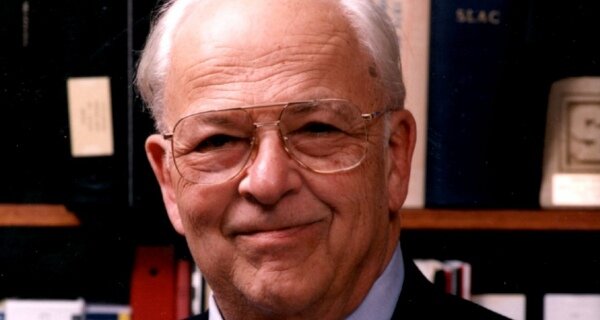Book on Climate Change And Energy by Nobel Prize Winner is a “Must Read” BOOK REVIEW
Posted March 28th, 2011 in Book Review
By Elona Malterre
Beyond Smoke and Mirrors: Climate Change and Energy in the 21st Century, by Nobel Prize-winning physicist Burton Richter, is a must read for anyone who wants to understand the complex links between energy and climate change.
Whether the readers are students, politicians, environmentalists, industrialists, journalists or lay people, this book will give them a better grasp of a difficult subject.
Richter, who writes in clear, concise prose spiced with subtle humor, makes the story of the world’s growing energy requirements for 9 billion people read like a page-turning thriller.
But this is not a doomsday book: Richter’s enormous knowledge about physics conveys a factual account of what human creativity has accomplished for society, and what it can continue to do.
Consider what he says about energy efficiency: “Appliance standards have shown to be cost effective and we need more of them. The American Council on an Energy Efficient Economy (www.ACEEE.org) estimates that present appliance standards in the United States have already saved about 250 billion kWh of electricity which at a cost of 10 cents per kWh which amounts to $25 billion . . . the same standards are estimated to save another $230 billion in today’s dollars . . . over the period from now until 2020.”
People who work in the scientific arena often lament the general population’s illiteracy about units of measurement and large numbers. At conferences, I have heard electrical utility executives complain that mainstream reporters confuse watts (a measure of power) with kilowatt-hours (a measure of energy).
Richter, with the understanding that all great educators have, starts his book with the basics.
The preface contains three key elements for anyone who wants to better understand energy:
• A list of units, including large numbers: giga means a billion; tera equals a thousand billion or a million-million; power: one watt equals basic unit of electrical power equals one joule per second; one kilowatt-hour equals 3,600,000 joules.
• A list of conversion factors, including energy conversion factors: gigawatt hours to million tons of oil equivalent; mass conversions: ton to kilogram; and volume conversions: (US gallon to barrel, UK gallon to barrel).
• A list of abbreviations: DSM – demand side management; LWR: light water reactor. This is particularly helpful to anyone attempting to decipher the ever-increasing universe of acronyms created by complex technologies.
Richter tells his readers that demand side management is probably one of the most efficient ways to lower carbon emissions, but he cautions that while efficiency “is part of the solution to the problem of greenhouse gas emissions . . . it cannot do it all.”
He devotes three of his 18 chapters to renewable energy sources. Solar, wind and geothermal are addressed with objectivity and highly accessible maps, graphs, illustrations and tables.
For those readers who want more technical aspects of energy gathering and production, Richter includes technical notes in each chapter.
Despite the nuclear disaster in Japan, Richter remains a proponent of nuclear energy: “Nuclear power is the only large-scale carbon-free system that now can produce . . . base-load power.” Base-load power refers to all electricity generation that happens on a 24-hour basis; this generation includes home appliances and lighting, but also traffic lights, hospitals, airports and all manufacturing.
Richter also discusses biofuels. While he acknowledges that the next generation of biofuels, such as bacteria and algae, “(has) a potential that is only beginning to be explored,” he writes forthrightly that the U.S. policy on ethanol “makes no sense at all unless you believe that reducing oil imports is the only way to measure the benefits. Since the energy inputs required to make ethanol are about the same as its energy content, using ethanol as a motor fuel is really driving your car on a combination of coal, natural gas, nuclear power and oil.”
Richter concludes his book with a section on policy in addressing climate change. He lists new, bad and good aspects of U.S. policy up until the writing of the book – mid-2009 –and he argues that a national law is needed rather than “what is now a jumble of different approaches.”
A lot has changed in the U.S. federal government since mid-2009, including the election of a largely Republican Congress which seeks to dismantle much climate legislation. But essentially the laws of physics remain immutable, and world demand for power continues to rise.
As a compendium of vital energy information, clear facts on climate change and insights into how political decisions about energy are made in the U.S. and the world, Richter’s book is an invaluable resource. EnviroLine



Comments
Comment made on October 3rd, 2012 at 6:18 pm by Ilkay